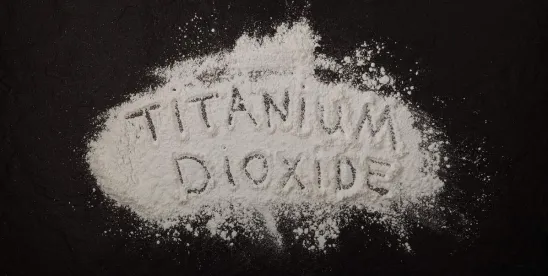On May 23, 2024, the European Commission’s (EC) Scientific Committee on Consumer Safety (SCCS) published a document entitled “Scientific Advice on Titanium dioxide (TiO2).” The document includes the following questions from the EC and SCCS’s conclusions:
| Q: | In light of the European Food Safety Authority’s (EFSA) opinion on genotoxicity concerns for E171, does SCCS consider titanium dioxide safe in oral cosmetic products? |
| A: | From the provided information, SCCS notes that the titanium dioxide materials evaluated belong to a wide range of grades (44 pigmentary and 40 nano) used in cosmetic products. Having reviewed all of the information, including that evaluated by EFSA, SCCS considers that the available evidence is not sufficient to exclude the genotoxicity potential of almost all of the types of titanium dioxide grades used in oral cosmetic products. The only exception are two nano grades (RM09 and RM11), for which the provided genotoxicity data indicate no genotoxicity concern. SCCS states that more information is needed on the potential uptake and cellular effects of the nano grades in the oral mucosa to consider them safe for use in oral-care products, as well as more experimental data from studies carried out under valid protocols and appropriate testing guidelines to exclude the genotoxicity potential of the selected representatives of the other grades of titanium dioxide used in oral cosmetic products.
SCCS notes that its approach to the risk assessment of titanium dioxide ingredients in orally used cosmetic products is slightly different from that of EFSA because cosmetic products are not meant to be ingested orally, and any ingestion via the oral route can only be unintended and incidental. The amounts of orally ingested cosmetic ingredients can only be expected to be far lower than the amounts ingested when a titanium dioxide material is used as a food additive, which is consumed via intake of the food products. For SCCS, the potential absorption/retention, translocation, and adverse effects of nanoparticles in the buccal mucosa are important considerations for safety evaluation. SCCS recommends that the safety assessment of pigmentary titanium dioxide grades used in cosmetics should account for the fact that some of them contain a sizable proportion of the particles in the nano size scale — some over 50 percent (in terms of particle number and median constituent particle size). |
| Q: | In light of EFSA’s opinion, does SCCS consider that previous SCCS opinions on inhalation and dermal exposure to titanium dioxide need to be revised? |
| A: | SCCS states that the conclusions drawn in its previous opinions on dermally applied cosmetic products remain unchanged for the titanium dioxide grades and the coatings evaluated in those opinions. New data on dermal absorption will be required for other types of titanium dioxide grades and coatings that are not covered in the Cosmetics Regulation 1223/2009 and not covered by entry 27a in Annex VI.
According to the Cosmetics Regulation 1223/2009, nano titanium dioxide is already restricted under entry 27a of Annex VI as not to be used in applications that may lead to exposure of the end user’s lungs by inhalation. The conclusions drawn in previous SCCS opinions on the safety of titanium dioxide used in specific cosmetic products that may lead to exposure by inhalation also remain unchanged. |
| Q: | In the event that the estimated exposure to titanium dioxide from cosmetic products is found to be of concern, SCCS is asked to recommend safe concentration limits for each category of products and types of use. |
| A: | SCCS states that since the genotoxicity hazard of almost all grades of titanium dioxide could not be excluded (with the exception of RM09 and RM11), it “cannot recommend any safe limits for the materials when used in cosmetic products that could lead to oral or inhalation exposure, other than those already indicated in the previous SCCS Opinions (SCCS/1516/13, SCCS/1580/16 and SCCS/1617/20).” |
| Q: | In light of the potential removal of the E171 purity specification from the food additives regulation, SCCS is requested to review and indicate the respective specifications for titanium dioxide when used in cosmetics. |
| A: | In view of the concerns on the potential genotoxicity of the titanium dioxide grades considered in this Scientific Advice, SCCS is of the opinion that the applicants should propose specifications of the titanium dioxide grades used in those cosmetic products that could lead to oral and inhalation exposure. SCCS will be able to assist the EC in reviewing the proposal. |
| Q: | Does SCCS have any further scientific concerns regarding the use of titanium dioxide in cosmetic products? |
| A: | According to SCCS, studies have indicated that oral mucosal cells are prone to the uptake of nanoparticles (including titanium dioxide nanoparticles), as they may penetrate the mucous layer and may be internalized by the epithelial cells. Considering that some oral products containing titanium dioxide nanoparticles, such as toothpastes, are used every day and potentially more than once a day, further investigations are needed to exclude the risk to the consumer from long-term repeated exposures of the oral mucosa to titanium dioxide nanoparticles. |




 />i
/>i

